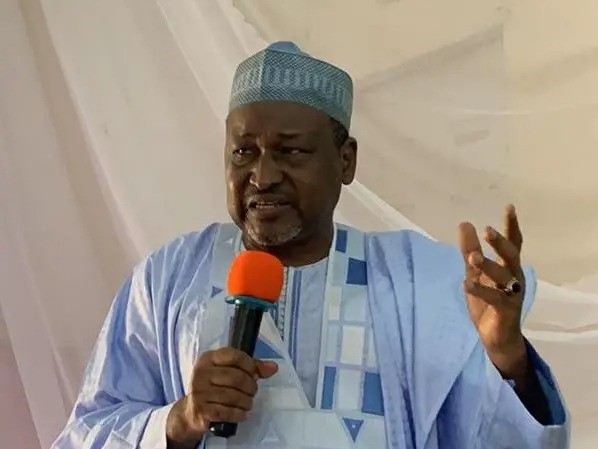The executive secretary (ES) of the National Board for Technical Education (NBTE), Professor Idris Bugaje has disclosed that, in a bold move towards institutional reform, plans for the conversion of the NBTE to the National Commission for Technical Education (NCTE) is underway.
He said such strategic transformation aims to elevate the status of NBTE, aligning it with its counterparts such as the National Universities Commission (NUC), adding that NCTE possesses greater autonomy and authority to implement robust policies for technical education.
Professor Bugaje made the disclosure when he received the newly elected executives of the National Association of Polytechnic Students (NAPS) led by the outgoing president, Comrade Ridwan Opeyemi in his office.
The new executive council of NAPS has Comrade Eshiofune Paul Oghayan as the new president.
Prof Bugaje who elaborated on the numerous benefits the conversion would bring, said that it will enhance regulatory powers, increase funding and resources, emphasising that the shift will attract more government funding, foster infrastructural development and academic excellence in polytechnics.
He said it would also give it global recognition as polytechnic qualifications will gain increased international recognition, boosting the global competitiveness of Nigerian graduates.
The executive secretary also noted that the conversation will strengthen advocacy for technical education adding that, “The NCTE will have a stronger voice in national education policies, ensuring that the needs of technical institutions and students are prioritized.”
The development, he noted, will have far-reaching benefits for polytechnic students, graduates and institutions, positioning Nigeria’s technical education sector as a catalyst for national growth and innovation.
Professor Bugaje also addressed the ongoing mobilisation challenges faced by part-time students concerning their eligibility for the National Youth Service Corps (NYSC). He announced that an agreement has been reached to allow affected students to be mobilised regardless of their ND background and without the mandatory Industrial Training (IT) letter for the next two years.
This decision, he emphasised, is part of an interim measure to ease the difficulties faced by students who have been unfairly excluded from the NYSC scheme due to technicalities surrounding their IT documentation, stressing however that after the two-year grace period, full enforcement of the policy will commence, making the submission of the IT letter compulsory for NYSC mobilisation.
Prof Bugaje assured that NBTE is working closely with the NYSC Directorate and other relevant stakeholders to streamline the mobilization process, ensuring fairness and inclusivity for all Nigerian students, regardless of their mode of study which represents a significant victory for part-time students who have long faced uncertainty regarding their NYSC status.
On the issue of HND-BSc dichotomy, Prof Bugaje reaffirmed NBTE’s unwavering commitment to the abolition of this discriminatory barrier, which has historically limited the career progression of polytechnic graduates.
According to him, substantial progress has been made through collaborative efforts with the National Assembly and other key education stakeholders, adding that Legislative measures aimed at eliminating the dichotomy are advancing, with strong support from both the public and private sectors.
He emphasized that the recognition of HND certificates as par with BSc degrees will not only enhance the employability of polytechnic graduates but also foster a more merit-based system where skills and competencies are prioritised over paper qualifications, a progress he said will reflect a transformative shift towards educational equity and national development.
In his farewell speech, Comrade Opeyemi expressed profound gratitude to NBTE for its steadfast support during his tenure while reflecting on the achievements of his administration, particularly in areas of student advocacy, educational reforms, and institutional partnerships.
On his part, the newly elected president, Comrade Oghayan pledged to build on the foundations laid by his predecessors, committing to prioritising students’ welfare, educational equity and policy reforms, while fostering a culture of dialogue and collaboration with key stakeholders, including NBTE.
